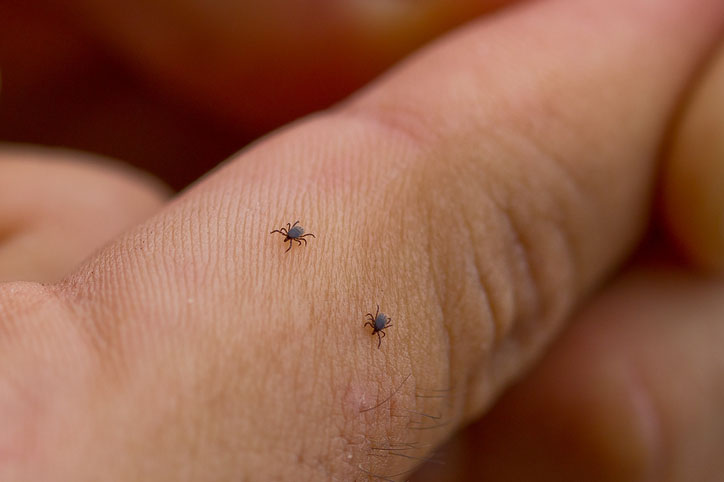Disorders of the Pancreas in Cats
- Digestive Disorders of Cats
- Introduction to Digestive Disorders of Cats
- Congenital and Inherited Disorders of the Digestive System in Cats
- Dental Development of Cats
- Dental Disorders of Cats
- Disorders of the Mouth in Cats
- Disorders of the Pharynx in Cats
- Disorders of the Esophagus in Cats
- Vomiting in Cats
- Disorders of the Stomach and Intestines in Cats
- Disorders Caused by Bacteria of the Digestive System in Cats
- Gastrointestinal Parasites of Cats
- Disorders Caused by Protozoa of the Digestive System in Cats
- Disorders of the Pancreas in Cats
- Disorders of the Liver and Gallbladder in Cats
- Disorders of the Rectum and Anus in Cats
Also see professional content regarding pancreatic disorders.
The pancreas is an organ that has 2 main functions: endocrine and exocrine. The endocrine pancreas produces the hormones insulin and glucagon, which regulate blood sugar levels. The exocrine pancreas produces enzymes that are essential for the digestion of complex dietary components such as proteins, triglycerides, and complex carbohydrates. The exocrine pancreas also secretes large amounts of bicarbonate, which buffers stomach acid.
Disorders of the exocrine pancreas are discussed here, because they relate to digestion. Endocrine functions of the pancreas are discussed in the Hormonal Disorders chapter.
Inflammation of the Pancreas (Pancreatitis)
Pancreatitis, or inflammation of the pancreas, is the most common exocrine pancreatic disease in cats. It can be short-term (acute) or longterm (chronic), depending on whether or not the disease has led to permanent damage to pancreatic cells. Both forms of pancreatitis can be severe. In most cases of pancreatitis, the cause cannot be determined.
Signs of severe pancreatitis are the same as with many other digestive disorders. They can include lethargy, loss of appetite, dehydration, low body temperature, vomiting, and abdominal pain. Blood tests may be used by your veterinarian to confirm the diagnosis, along with ultrasonography or exploratory surgery, if needed.
Treatment for pancreatitis includes careful monitoring and supportive veterinary care. Hospitalization may be required. Early intervention will help prevent complications. If the cause is known, specific treatment may be started. Resting the pancreas by giving the cat nothing by mouth for 3 to 4 days is recommended only when the cat is vomiting. Treatment with intravenous fluids may be required. Pain medication is given in most cases because the cat is assumed to have abdominal pain.
In mild cases of pancreatitis, cats may be switched to a low-fat diet and low-fat treats. Pancreatic enzyme supplementation may help in cases in which abdominal pain is present or for cats with poor appetites (often the only indicator of abdominal pain). Cats with mild, longterm pancreatitis should be monitored for potential complications, such as exocrine pancreatic insufficiency (see Disorders of the Pancreas in Cats : Exocrine Pancreatic Insufficiency).
The outlook in mild cases is good, but outlook in severe cases of pancreatitis is poor. About half of cats with severe pancreatitis may die.
Exocrine Pancreatic Insufficiency
Exocrine pancreatic insufficiency is a syndrome caused by insufficient production and secretion of digestive enzymes by the pancreas. Longterm inflammation of the pancreas (pancreatitis) is the most common cause in cats; less commonly, tumors that lead to obstruction of the pancreatic duct cause this disorder.
Cats with exocrine pancreatic insufficiency are usually middle-aged to older and can be of any breed. The most common signs are excessive eating, weight loss, and loose stools or diarrhea. Vomiting and loss of appetite are seen in some cats and may be a sign of other disorders. Diabetes mellitus is often seen with exocrine pancreatic insufficiency, due to the destruction of pancreatic hormone-producing cells. The feces are most commonly pale, loose, and voluminous and may be foul-smelling. In rare cases watery diarrhea may be seen. The high fat content of the feces can lead to a greasy appearance of the hair coat, especially in the region around the anus and tail. Diagnosis can be made using a blood test that indicates the decreased function of the exocrine pancreas.
Most cats with exocrine pancreatic insufficiency can be successfully treated by dietary supplementation with pancreatic enzymes (powdered or from fresh tissue). Follow your veterinarian’s directions for this dietary supplement carefully, and be sure to report any bleeding of the mouth, which can often be eliminated with a lower dose of the enzyme. When signs have improved, it may be possible to gradually decrease the dose.
If enzyme supplementation alone does not resolve the condition, vitamin B12 (cobalamin) deficiency may be a possible cause. This can be treated by injection of this vitamin. Other vitamin deficiencies have also been reported.
In most cases, exocrine pancreatic insufficiency is the result of an irreversible loss of pancreatic tissue and a cure is rare. However, with appropriate diet supplementation and monitoring, cats with exocrine pancreatic insufficiency usually gain weight quickly, pass normal stools, and can live a normal life.
Pancreatic Cancers
Cancers of the pancreas can be either benign or malignant (cancerous). Pancreatic adenomas are benign tumors. Pancreatic adenocarcinomas are malignant; however, they are uncommon in cats. The signs in cats with pancreatic tumors are very general, and many animals show no signs until late in the disease. If signs are present, they often include not eating, vomiting, or abdominal pain. If the tumor has spread to other organs, signs such as lameness, bone pain, difficulty breathing, jaundice, lack of appetite, or hair loss can occur.
Pancreatic adenomas do not usually require any treatment unless they cause signs. However, because they look similar to pancreatic adenocarcinoma, the affected pancreatic tissue is often removed. The outlook in these cases is excellent.
Pancreatic adenocarcinomas are usually not detected until the disease is advanced and the cancer has already spread. In those few cases when it appears the cancer has not yet spread, the veterinarian may remove the tumor by surgery. However, it is difficult to completely remove such tumors and surgery is often unsuccessful. The outlook for cats with pancreatic adenocarcinoma is grave.
Pancreatic Abscesses
A pancreatic abscess is a collection of pus, usually near the pancreas, which may contain dead pancreatic tissue. Signs may include vomiting, depression, abdominal pain, loss of appetite, fever, diarrhea, and dehydration. In some animals, a lump in the abdomen can be felt. Cats may respond favorably to surgical drainage of the abscess. However, the risks and expense of surgery may outweigh the benefit to the cat unless there is clear evidence of an enlarging mass or bacterial infection. Your veterinarian will make a surgical recommendation based on your cat’s specific condition, overall health, and related considerations.
Pancreatic Pseudocyst
A pancreatic pseudocyst is a collection of sterile pancreatic fluid enclosed by a wall of tissue. Signs are similar to those of pancreatitis and include poor appetite, lethargy, vomiting, or abdominal pain. Vomiting is the most consistent sign reported in cats. Pancreatic pseudocysts can be treated with or without surgery. Surgery may be needed if the cat has persistent signs or if the pseudocyst does not decrease in size.
For More Information
Also see professional content regarding pancreatic disorders.
- Digestive Disorders of Cats
- Introduction to Digestive Disorders of Cats
- Congenital and Inherited Disorders of the Digestive System in Cats
- Dental Development of Cats
- Dental Disorders of Cats
- Disorders of the Mouth in Cats
- Disorders of the Pharynx in Cats
- Disorders of the Esophagus in Cats
- Vomiting in Cats
- Disorders of the Stomach and Intestines in Cats
- Disorders Caused by Bacteria of the Digestive System in Cats
- Gastrointestinal Parasites of Cats
- Disorders Caused by Protozoa of the Digestive System in Cats
- Disorders of the Pancreas in Cats
- Disorders of the Liver and Gallbladder in Cats
- Disorders of the Rectum and Anus in Cats





